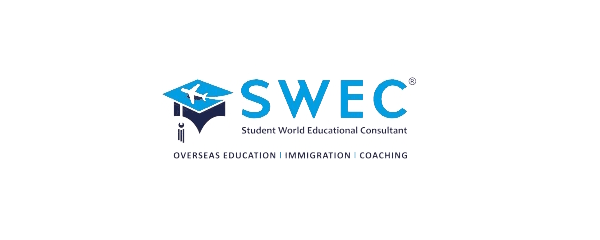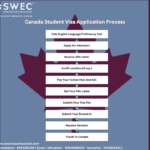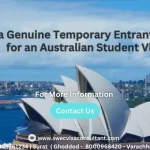Canada is a dream destination for many students worldwide, particularly from India, due to its world-class education system, diverse culture, and excellent post-graduation opportunities. However, the language proficiency requirements, particularly IELTS, can feel like a barrier for many aspiring students. This blog will walk you through the various alternatives to IELTS and explain how you can still achieve your goal of studying in Canada.
Canada is renowned for its high-quality education, with universities and colleges ranking among the best globally. The country is home to some of the most esteemed institutions like the University of Toronto, McGill University, and the University of British Columbia. These institutions offer modern facilities, cutting-edge research opportunities, and a multicultural environment. The country’s education system is designed to encourage practical learning, critical thinking, and innovation, making it a preferred choice for Indian students.
Benefits of Studying in Canada
- Work Opportunities: Canada provides post-graduate work permits (PGWP), allowing international students to gain work experience after completing their studies.
- Pathways to Permanent Residency: Many students use their education as a stepping stone to permanent residency through programs like Express Entry.
- Cultural Diversity: Canada is known for its inclusive society, making it easier for international students to feel at home.
Importance of Language Proficiency for Canada Student Visa
Language proficiency is a crucial criterion for securing a Canada student visa. Canadian institutions typically require proof of English or French language proficiency to ensure students can cope with academic challenges and integrate into society. IELTS has long been the preferred test; however, it is not the only way to demonstrate your proficiency.
Purpose of the Blog
This blog aims to demystify the process of applying for a Canada student visa without IELTS. We’ll explore alternatives and guide you through the steps to make your dream of studying in Canada a reality.
Table of Contents
Understanding Language Requirements for Canada Student Visa
Role of Language Proficiency
Language proficiency is essential not just for academic success but also for daily communication.
- Academic Success: Proficiency in English or French ensures that students can effectively participate in lectures, complete assignments, and interact with peers.
- Daily Life: Whether navigating through public transportation or building a network of friends, language plays a pivotal role in ensuring a smooth transition to life in Canada.
Alternatives to IELTS
While IELTS is the most recognised test, there are several alternatives for students who wish to avoid it:
1. TOEFL (Test of English as a Foreign Language):
Widely accepted by Canadian institutions, TOEFL focuses on academic English and assesses reading, listening, speaking, and writing skills.
2. PTE (Pearson Test of English):
PTE is a computer-based test that evaluates real-world English skills. Many Canadian universities and colleges accept it.
3. Duolingo English Test:
A budget-friendly and convenient option, the Duolingo test can be taken online from the comfort of your home.
4. French Proficiency Tests:
For students applying to French-speaking institutions, tests like TEF (Test d’Évaluation de Français) and TCF (Test de Connaissance du Français) are widely accepted.
When IELTS is Not Required
Certain situations exempt you from taking IELTS:
- Acceptance by Institutions: Some Designated Learning Institutions (DLIs) accept alternative tests or proof of English as the medium of instruction during previous education.
- French Institutions: If you are applying to a French-medium institution, English proficiency may not be required.
- Language Preparatory Programs: Many institutions offer language preparatory courses, allowing students to meet proficiency requirements after enrollment.
Applying for a Canada Student Visa Without IELTS
Scenarios Where IELTS Is Not Required
Several situations allow students to bypass IELTS:
- Acceptance by a Designated Learning Institution (DLI):
Many Canadian DLIs do not mandate IELTS and accept alternative language proficiency tests or other proof of English knowledge. - Admission to a French-medium institution:
If your chosen institution delivers courses in French, proof of English proficiency is typically unnecessary. - Completion of Previous Education in English:
If you studied in an English-medium school, college, or university, you can provide a medium of instruction certificate as proof of proficiency.
Steps to Demonstrate Language Proficiency Without IELTS
If IELTS is not an option, you can still prove your language proficiency through the following methods:
- Submitting Proof of Prior Education in English:
Obtain a medium of instruction (MOI) certificate from your previous educational institution. This certificate confirms that your education was conducted in English. - Providing Results of Alternative English Proficiency Tests:
Many DLIs accept scores from other tests such as:- TOEFL
- PTE
- Duolingo English Test
- Enrolling in Language Preparatory Courses in Canada:
Some institutions offer English language preparatory programs. Upon successful completion, you can transition into your main program of study.
Institutions and Programs Accepting Students Without IELTS
DLIs That Accept Alternative Language Tests
Several Canadian universities and colleges accept TOEFL, PTE, or Duolingo scores instead of IELTS. Some notable institutions include:
French-Medium Institutions
For students fluent in French, institutions like the Université de Montréal and Université Laval cater to French-speaking students. These institutions generally do not require proof of English proficiency.
Programs with Conditional Admissions
Some DLIs offer conditional admissions. These programs require students to:
- Complete a language course offered by the institution itself.
- Meet the minimum language proficiency levels post-admission.
Preparing Your Student Visa Application Without IELTS
Key Documents Required
When applying for a Canada student visa without IELTS, the following documents are essential:
- Acceptance Letter from a DLI:
Ensure the institution is recognized by IRCC and accepts alternative proficiency tests. - Proof of Language Proficiency:
Submit scores from TOEFL, PTE, or Duolingo, or provide a medium of instruction certificate. - Financial Proof:
Show evidence of your ability to pay tuition fees and living expenses (minimum CAD 20,635 for living costs, in addition to tuition and travel expenses). - Additional Documents:
- Valid passport.
- Passport-sized photographs.
- A detailed study plan.
Crafting a Study Plan
A strong study plan can compensate for the lack of an IELTS score. Focus on:
- Justifying Language Proficiency:
Clearly explain how your alternative proof (TOEFL/PTE scores or MOI certificate) demonstrates your ability to succeed academically in Canada. - Highlighting Your Academic Goals:
Discuss how studying in Canada aligns with your career aspirations. - Addressing the IELTS Gap:
Mention why you opted for an alternative to IELTS and reassure the visa officer of your language capabilities.
Advantages and Challenges of Applying Without IELTS
Advantages
- Cost Savings on IELTS Exams:
- IELTS exam fees can range between INR 15,000–20,000, which is a considerable amount for many students.
- Opting for alternative methods to prove your language proficiency eliminates this expense, enabling you to allocate funds to tuition, visa fees, or other necessities.
- Availability of Alternative Pathways:
- Institutions in Canada recognize other tests like TOEFL, PTE, and Duolingo for English proficiency.
- French-medium programs in Canada don’t require English language proficiency, providing another alternative.
- Flexibility for English-medium education Graduates:
- Students who have completed their secondary or tertiary education in English can submit a Medium of Instruction (MOI) Certificate to prove their proficiency.
- This pathway is especially beneficial for Indian students, as many have completed their education in English-medium schools and colleges.
- Acceptance in Language Preparatory Programs:
- Some institutions offer conditional admissions requiring students to attend English language courses in Canada before commencing their main program.
- Opportunity to Explore French-Medium Education:
- For those fluent in French or interested in learning the language, French-medium institutions offer a unique cultural and educational experience, bypassing the need for English proficiency tests entirely.
Challenges
- Limited Institution Options:
- While several Canadian colleges and universities accept alternative tests, the choices are still fewer than those requiring IELTS.
- This limitation can result in increased competition for available seats.
- Need for Extensive Documentation:
- Without IELTS, you must provide alternative evidence, such as:
- Results of other proficiency tests (e.g., TOEFL, PTE, Duolingo).
- A Medium of Instruction Certificate from your previous institution.
- Additional requirements, such as enrollment in pathway programs, may complicate the process.
- Without IELTS, you must provide alternative evidence, such as:
- Higher Admission Standards:
- Schools accepting non-IELTS applications might demand stronger academic credentials, work experience, or other qualifications.
- Preparation for French-Medium Institutions:
- Non-French speakers applying to French-medium institutions may face language barriers and need to take preparatory courses.
Alternatives to English Proficiency Tests
Students who cannot or prefer not to take IELTS can explore these alternatives:
Language Preparatory Programs in Canada
- Pathway Programs Offered by Institutions:
- Many Canadian universities and colleges provide conditional admissions through English preparatory courses, such as:
- Completing these programs ensures your readiness for academic coursework in English.
- Benefits of Language Programs:
- Improves both academic and conversational English skills.
- Offers a smooth transition into Canadian education by familiarizing students with the learning environment.
French Language Pathway
- Advantages of Studying in French-Medium Institutions:
- Students fluent in French or willing to learn can apply to prestigious institutions like:
- Université de Montréal
- Université Laval
- French-medium education provides exposure to a unique cultural environment and removes the requirement for English proficiency tests.
- Students fluent in French or willing to learn can apply to prestigious institutions like:
- Preparation for French Pathways:
- Non-French speakers can attend introductory French courses offered in India or Canada before joining their academic program.
Tips for a Successful Application
Securing admission without IELTS requires meticulous planning and effort. Follow these tips to enhance your chances:
Research Thoroughly
- Identifying Suitable Institutions:
- Compile a list of Canadian institutions that accept alternative language tests like TOEFL or Duolingo.
- Verify requirements directly with institutions to avoid misinformation.
- Confirm Admission Criteria:
- Review application guidelines for documents, deadlines, and conditional requirements like pathway programs.
Highlighting Your Strengths
- Strong Academic or Professional Background:
- Leverage your academic achievements, extracurricular involvement, or professional work experience.
- Use these strengths to compensate for the absence of an IELTS score.
- Crafting an Effective Study Plan:
- Address the lack of an IELTS score in your study plan by explaining alternative proofs of proficiency and your commitment to succeeding in an English-speaking academic environment.
Seek Professional Guidance
- Benefits of Consulting Education Consultants:
- Experts like SWEC Visa Services provide tailored advice for Indian students navigating the Canada student visa process without IELTS.
- From selecting institutions to crafting compelling study plans, professional consultants streamline the application process.
- How SWEC Can Help:
- Assistance in identifying suitable universities and alternative tests.
- Guidance on obtaining a Medium of Instruction Certificate or enrolling in pathway programs.
- Personalized support in preparing a strong study visa application.
Post-Application Process
Tracking Your Application
- How to Check the Status of Your Canada Student Visa Application:
- Use the IRCC (Immigration, Refugees, and Citizenship Canada) online portal to track your application status.
- Login to your IRCC account and monitor updates under the “Submitted Applications” section.
- You will receive notifications regarding additional documentation requests or decisions via email.
- When to Follow Up:
- Processing times for student visa applications vary depending on your country of residence.
- If there’s no update beyond the expected processing period, consider contacting the visa office.
Preparing for Arrival in Canada
- Orientation Programs for International Students:
- Many Canadian universities and colleges organize orientation programs to help students adapt.
- These sessions cover academic expectations, cultural integration, and campus resources.
- Joining Language Improvement Programs if Needed:
- If you’ve opted for a conditional admission or preparatory language program, enrol immediately after arrival.
- These programs ensure you are linguistically ready for academic coursework.
- Additional Preparations Before Departure:
- Arrange accommodations, health insurance, and travel documents.
- Familiarize yourself with local transportation and cultural practices to settle in more comfortably.
Summary of Key Points
- Multiple pathways exist to obtain a Canada student visa without IELTS, such as alternative language tests, French-medium institutions, and preparatory programs.
- Proper documentation, like a Medium of Instruction Certificate or proof of financial support, is vital.
- Thorough research and professional guidance are critical to ensure a successful application.
Don’t let the absence of an IELTS score discourage you from pursuing your dream of studying in Canada. Many options and resources are available to help you navigate the process successfully.
Take the first step towards a brighter future by exploring your options with professional guidance. SWEC Visa Services is here to support you in choosing the right institution, preparing documents, and securing your Canada student visa seamlessly.
Frequently Asked Questions (FAQs)
Q1. Can I study in Canada without IELTS?
Ans1. Yes, many Canadian institutions accept alternative language tests like TOEFL, PTE, or Duolingo, or offer admissions based on a Medium of Instruction Certificate.
Q2. Which universities in Canada do not require IELTS?
Ans2. Institutions like the University of Regina, Concordia University, and Carleton University accept alternative language tests or waive IELTS requirements for certain conditions.
Q3. Is TOEFL accepted for a Canada student visa?
Ans3. Yes, TOEFL is widely accepted by Canadian institutions and recognized by IRCC for visa applications.
Q4. What documents can I use to prove my English proficiency?
Ans4. Accepted documents include:
- Medium of Instruction Certificate.
- TOEFL, PTE, or Duolingo test results.
- Proof of prior education in English.
Q5. Are there scholarships available for students without IELTS?
Ans5. Yes, many Canadian universities offer scholarships based on academic performance, research potential, or alternative language proficiency tests like TOEFL.
Q6. What is the processing time for a Canada student visa?
Ans6. Processing times vary by country but typically range from 4-12 weeks.
Q7. Do I need an acceptance letter from a DLI to apply for a visa without IELTS?
Ans7. Yes, an acceptance letter from a Designated Learning Institution (DLI) is mandatory.
Q8. What is the Medium of Instruction Certificate?
Ans8. This certificate confirms that your prior education was conducted in English and serves as proof of language proficiency.
Q9. Is a study plan necessary for a visa application without IELTS?
Ans9. Yes, a well-crafted study plan explains your academic goals, course choice, and reasons for selecting Canada.
Q10. How can I check my visa application status?
Ans10. Use the IRCC portal to track updates and view decisions on your application.
Q11. Can I join language preparatory programs in Canada?
Ans11. Yes, many universities offer English improvement courses for students admitted conditionally without IELTS.
Q12. Is it mandatory to take a French course for French-medium institutions?
Ans12. Yes, for non-French speakers, preparatory French courses are often required.
Q13. Can I work part-time as a student in Canada?
Ans13. Yes, international students with a valid study permit can work up to 20 hours per week during semesters and full-time during breaks.
Q14. Are institutions accepting TOEFL or Duolingo scores limited?
Ans14. Yes, compared to IELTS, fewer institutions accept alternative tests. Researching and selecting the right institution is essential.
Q15. What if my visa application is refused?
Ans15. If refused, review the reasons provided, address any issues, and consider reapplying with stronger supporting documents.
Q16. What are the alternatives for students weak in English?
Ans16. Students can join language preparatory programs in Canada or apply to French-medium institutions.
Q17. Can I apply for PR in Canada without IELTS?
Ans17. Yes, but language proficiency is a key criterion for PR applications. Alternative tests like TEF for French or PTE for English may be accepted.
Q18. What is the cost of studying in Canada without IELTS?
Ans18. The cost varies but includes tuition fees (INR 10–25 lakhs annually), living expenses, and pathway program fees if required.
Q19. Can I extend my study permit after enrolling in language courses?
Ans19. Yes, you can apply for an extension to complete your main academic program after finishing preparatory courses.
Q20. Can I bring family members while studying?
Ans20. Yes, dependent family members can apply for open work permits or visitor visas alongside your study permit application.






